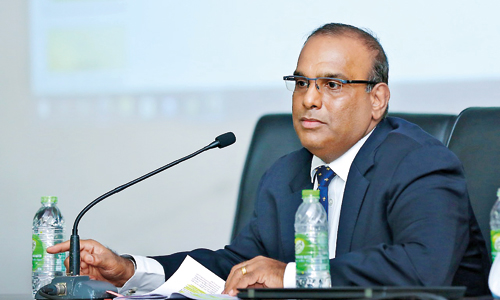‘Sportspersons should maintain records of assets and accounts’

Additional Solicitor General Sumathi Dharmawardena
Days after match-fixing allegations rocked sporting circles, legal experts say sportspersons should maintain records of their assets and accounts to produce to investigators in the event of any inquiry. This is required by the recently enacted law on Prevention of Offences Relating to Sports.
The Special Investigation Unit (SIU) set up under the new Act is empowered to examine assets and accounts of any person, their spouse and children, said Additional Solicitor General Sumathi Dharmawardena at a seminar to educate the sports fraternity on the new law which imposes stringent punishment for anyone found guilty of sports-related corruption including match-fixing.
Dharmawardena and former Sports Ministry Legal Adviser Panduka Keerthinanda played a key role in drafting the law, a first in the region, to counter the global fixing menace.
This is the second statute which has made it a mandatory requirement in Sri Lanka to declare assets of any person, spouse and child of such person subjected to an investigation under the Act [s.24 (g)], but limited to immovable and movable properties (assets) excluding liabilities.
“The intention of this law is to keep sports clean and free from corruption,” Dharmawardena, a President’s Counsel, said. “Therefore we have made it mandatory for them to declare their assets in the event of an inquiry. This requires them to keep details of their movable and immovable properties and all transactions related to said properties.”
The near three-hour-long lecture at the Ministry of Sports was attended by sportsmen and women, coaches and administrators. Dharmawardena highlighted the importance of playing the game with a straight bat without resorting to unethical practices like doping and match-fixing, both of which are rampant around the world today. The law’s purpose is to control, educate and to prevent and to investigate corruption in sports and to punish offenders through court proceedings. It addressed a lacuna in Sri Lanka’s legal regime to safeguard the integrity of sports.
“If assets are parked in a third person, the SIU has powers to examine to see how they have acquired ill-gotten wealth,” Dharmawardena explained.
These observations were made at a time when the country was in flames over former Sports Minister Mahindananda Aluthgamage’s allegation that the 2011 World Cup final was fixed.
The SIU for Prevention of Sports-Related Corruption threw the charge into the dustbin a few days after initiating an inquiry, having found no evidence to substantiate the claim. The Act empowers the Unit to investigate any match-fixing related incident inside and outside Sri Lanka’s territory.
“Without this salient feature, the outcome of an inquiry would have been doubtful,” Dharmawardena said. “Offences under this Act shall be investigated under the provisions of the Code of Criminal Procedure Act (section 19).” The SIU’s investigative powers are fully described in Section 23 of the Act.
If the matter under investigation falls under section 70 of the Bribery Act, the SIU shall refer such information or evidence to the Commission to Investigate Allegations of Bribery or Corruption.
“In terms of section 23(2)(b) of the said Act, on completion of the investigation by the SIU, and if they are of the opinion that there are reasonable grounds and cogent evidence to suspect that an offence under this Act has been committed, they shall submit a report along with any other documents available with the SIU in relation to such alleged offence to the Attorney General for consideration and prosecution,” Dharmawardena said.
The litmus test, however, is the SIU’s efficiency in conducting a comprehensive investigation and in submitting a report with cogent evidence to the Attorney General to enable him to consider a High Court prosecution.


